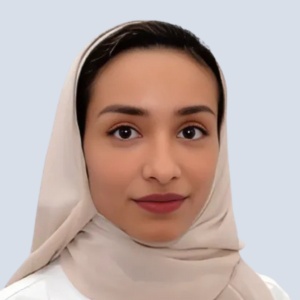
Amna Abdullah Mohaimeed
Saud University Medical City, Saudi ArabiaPresentation Title:
Radiation oncology residency training in Saudi Arabia: Direction in attaining competencies
Abstract
Introduction: Radiotherapy is a cornerstone in cancer treatment as a part of multidisciplinary team management. The field has evolved significantly over the past two decades due to technological advancement. To meet the increased need for manpower in the field, the radiation oncology residency program was first established in Saudi Arabia in 2019.
Materials and methods: This is a cross-sectional survey-based study that targeted all residents enrolled in the Saudi radiation oncology training program, except the first-year residents. The trainees received an anonymous online questionnaire aiming to assess their involvement in every aspect of the daily workflow.
Results: A total of 13 eligible radiation oncology residents in Saudi Arabia were included. Eleven residents completed the survey with a national response rate of 85%. Nine (82%) of the trainees reported that they review the contours and the treatment plans with their attendings in person and this method of review is the preferred one over the hybrid method as it provides better teaching quality, interactivity, and prompt ffeedback. Most respondents do not review offline (7, 64%) or online (6, 55%) cone beam computed tomography (CBCT) scans with their attendings, citing the limited involvement in the approval process.
Conclusion: This study uncovered a need for better resident integration into day-to-day clinical workflow, particularly in CBCT review and approval. Addressing the current concerns will enhance the educational experience and future practice. Acknowledging the limitations of our study, we observed that certain deficiencies in core competencies reported in long-established North American programs align with our findings. This underscores the need for addressing these gaps through continuous and unbiased evaluations of radiation oncology residency training programs to enhance the educational experience and ensure high-quality preparation for independent practice.
Biography
Amna Mohaimeed is a dedicated radiation oncology resident doctor in her 5th and final year of training at King Saud University Medical City in Riyadh, Saudi Arabia. She has a keen interest in education, research and quality improvement. For two consecutive years, she served as the regional chief resident representing the Central region and Eastern regions of Saudi Arabia. In this role, she coordinated educational activities, and helped support her fellow residents in communicating any concerns and areas of improvement to leaders in the program through continuous feedback.


